[Day trip] Kyoto city hotel pick-up and drop-off included. Japanese-style Kyoto sightseeing tour, Kinkaku-ji Temple - Kiyomizu-dera Temple - Fushimi Inari Taisha Shrine. Passing through the 1,000 torii gates.
- Beginners welcome - First try
- Empty-hands OK
- Pick-up & Drop-off
- Solo participant
- Operate rain or shine
- Children welcome
-
Possible number of bookings1~49
-
Participating age1Age ~ 70 Age
-
DurationOver 6 hours on the day
[08:40] ▼Nihonbashi Station Exit 2 (Namba-Shinsaibashi area) [09:50] ▼Kyoto Station Hachijo Exit (in front of 7-Eleven) [10:30] ▼Kinkaku-ji Temple (about 40 minutes) Visiting fees are at the customer's expense. [12:00] ▼Kiyomizu-dera area (individuals visit, stroll freely, lunch on their own / about 3.5 hours) [15:20] ▼Fushimi Inari Taisha Shrine (about 70 minutes) [16:50] ▼After enjoying the day's itinerary, we start to return. [18:10] ▼Shinsaibashi, Dotonbori area (free stroll / about 1 hour) ▼The original name of Kinkaku-ji Temple is Rokuon-ji Temple. It is also called "Kinkaku-ji Temple" because the exterior walls of the Shariden Hall, the central building of the temple, are all decorated with gold leaf. The temple was built in 1397. Originally a villa for Shogun Ashikaga Yoshimitsu (the prototype of Shogun Yoshimitsu in the anime "Kei Ikkyu-san"), it was later converted into the Zen temple "Bosatsurei". If you visit Kinkaku-ji Temple during the autumn foliage season, the golden tower and the red autumn leaves covering the mountain create a spectacular view. (Admission fee: 500 yen for adults, 300 yen for elementary and junior high school students) ▼ Recommended courses around Kiyomizu-dera Temple Recommended course 1: Kiyomizu-dera Temple (admission fee is at your own expense) - Ninenzaka - Ishibekoji - Gion - Hanamikoji - Yasaka Shrine (You can visit several tourist spots according to your preferences and physical condition) Recommended 2: Kimono experience. Interested guests can wear a kimono, stroll through the old streets, visit Kiyomizu-dera Temple, and leave the most beautiful moments. (There are many kimono shops at Kiyomizu-dera and Fushimi Inari Shrine, and you can choose where to return the kimono. We recommend renting at Kiyomizu-dera and returning at Fushimi Inari. You will be responsible for the cost.) ▼ Fushimi Inari Taisha is famous for its thousand torii gates, and many tourists from both Japan and abroad visit it every year. It was ranked number one for three consecutive years as "Japan's most popular tourist spots for foreigners" in a survey conducted by the world's largest travel site. Let's pray for ourselves and our loved ones here. This is a mixed tour, and participants come from all over the world.
Kinkakuji, formally known as Rokuonji, is one of the sub-temples of Shokokuji. It is commonly referred to as Kinkakuji because of its particularly famous relic hall, Kinkakuji. It is said to have originally been a villa owned by Saionji Kintsune, a nobleman from the Kamakura period, who was then transferred to the third shogun of the Muromachi shogunate, Ashikaga Yoshimitsu (the "Shogun" from the anime "Ikkyu-san"), who built the mountain villa Kitayamadono. Kinkakuji, a tourist attraction not only in Kyoto but in Japan as well, is a spot you should not miss when visiting Kyoto. You can enjoy the beautiful collaboration of the golden Kinkakuji and the crimson-colored autumn leaves while walking on the fallen autumn leaves that decorate the temple grounds like a carpet, and the number of visitors increases even more in autumn.
Recommended sightseeing course Course 1: Kiyomizu-dera Temple (Customers are responsible for admission fees.) - Ni, Sannenzaka - Ishibekoji - Gion · Hanamikoji-dori - Yasaka Shrine You can visit your favorite spots according to your physical strength and time. Course 2: Kimono experience (Customers who are interested can wear a kimono and enjoy the old townscape and touring Kiyomizu-dera Temple. Let's take pictures of the wonderful moments.) (There are many kimono shops near Kiyomizu-dera Temple and Fushimi Inari Taisha Shrine. We recommend renting a kimono at a shop at Kiyomizu-dera Temple and returning it at a shop at Fushimi Inari Taisha Shrine. Customers are responsible for the fee.)
Fushimi Inari Taisha Shrine, dedicated to Inari Okami, the god of bountiful harvests and prosperous business, is the head shrine of all Inari shrines in Japan. The bright orange torii gates lining the approach to Mount Inari are called "Senbon Torii." The "Senbon Torii" seem to continue on forever, creating an impressive atmosphere and making it one of the most famous sights in Japan.
Select your preferred day
- Immediate booking OK!
- Reception closed
- Not accepted
- Request booking
About fees
Basic fee
Optional fee
※The list price includes tax.
※The above price is a basic fee.
※Fees may vary depending on schedule, please check the fee displayed after selecting the date.
| Included in price | |
|---|---|
| Not included in price |
| Payment methods |
|
|---|---|
| Display of the Specified Commercial Transactions Act | Display of the Specified Commercial Transactions Act |
| Reservation cancellation fee generation date | Cancellation fee will be charged from 3 days before the event date. |
| About cancellation | Please note that if you cancel for your own reasons, the following cancellation fees will be charged: Cancellation 3 to 2 days in advance: 50% Cancellation the day before: 100% Cancellation on the day: 100% Cancellation without permission: 100% |
| About event termination | The tour will be canceled if severe weather conditions are expected, such as an approaching typhoon. |
Detailed information of this plan
| Required minimum number of participants | 1 Person(s) |
|---|---|
| Possible number of bookings | 1~49 |
| About duration |
Over 6 hours on the day
10 hours (round trip transportation included)
|
| Operating period | All-year-round |
| Assembly time | Please arrive 10 minutes prior to your reservation time. |
| Booking deadline | until 22:59 2 days before |
| Changing room | Toilet | ||
|---|---|---|---|
| Shower | Parking | ||
| Locker |
| Dress code - Must bring items | nothing special |
|---|
| Matters require attention | 1) Please note that the itinerary schedule may be adjusted due to weather, road conditions, and other reasons. 2) At around 9:00 p.m. on the day before departure, you will receive basic information including the guide's phone number and car plate number by email. Please make sure you can check it from email or mobile phone. 3) If you have a tattoo, please use a skin-colored sticker to cover the tattoo so that you can enter the hot spring. This course is not recommended for pregnant women or those with mobility issues. 4) This course does not include meals. 5) Children under 3 years old are free if they do not occupy a seat. Please let us know in advance. Children over 3 years old are charged the same as adults. 6) The type of vehicle used for the day trip will be adjusted according to the number of participants and the situation on the day. Please note. 7) One piece of free checked baggage allowance will be checked in free of charge. If you have baggage that exceeds the free baggage allowance, you will be charged an excess baggage fee (2,000 yen/piece) separately. |
|---|
Plan attractions

Nihonbashi Station Exit 2 (Namba-Shinsaibashi area) 〒542-0073 Osaka City, Chuo Ward, Nipponbashi 1-chome-3-6
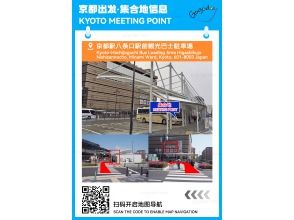
Kyoto Station Hachijo Exit Tourist Bus Parking Lot Kyoto-Hachijoguchi Bus Loading Area HigashikujoNishisannocho, Minami Ward, Kyoto, 601-8003 Japan
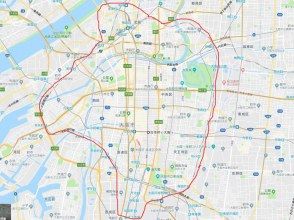
Pick-up from city hotels Delivery is available to addresses circled in red.
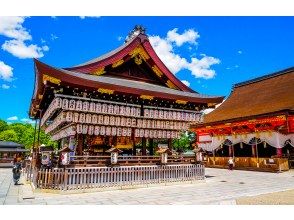
Yasaka Shrine Yasaka Shrine is a shrine located on Shijo Street in Kyoto City, also known as Gion-san. It is a recommended shrine for sightseeing, as it offers many benefits such as protection from evil spirits, finding a partner, and praying for beauty. (You can enjoy Kyoto's local gourmet food and appreciate the old Japanese-style buildings.)
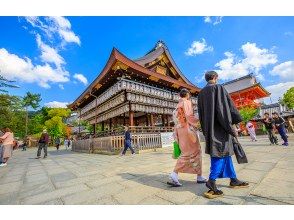
Yasaka Shrine Yasaka Shrine is a shrine located on Shijo Street in Kyoto City, also known as Gion-san. It is a recommended shrine for sightseeing, as it offers many benefits such as protection from evil spirits, finding a partner, and praying for beauty. (You can enjoy Kyoto's local gourmet food and appreciate the old Japanese-style buildings.)
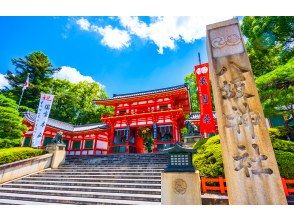
Yasaka Shrine Yasaka Shrine is a shrine located on Shijo Street in Kyoto City, also known as Gion-san. It is a recommended shrine for sightseeing, as it offers many benefits such as protection from evil spirits, finding a partner, and praying for beauty. (You can enjoy Kyoto's local gourmet food and appreciate the old Japanese-style buildings.)
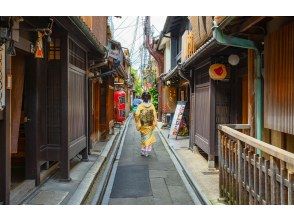
Stone Wall Alley Ishibekoji is a narrow alleyway below the south gate of Yasaka Shrine, and was named after the stone walls that look just like a stone wall. It is lined with inns, restaurants, and coffee shops with beautiful gardens, and has a history as the inner sanctum of Gion.
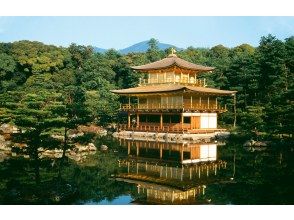
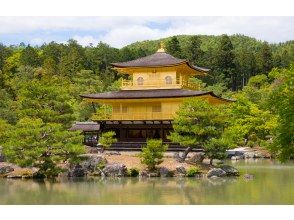
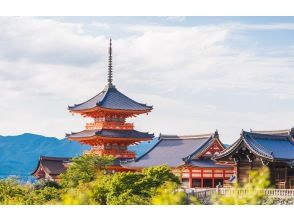
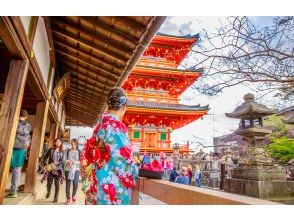
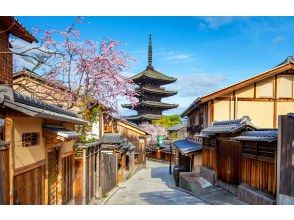
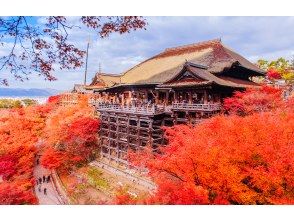
Time schedule
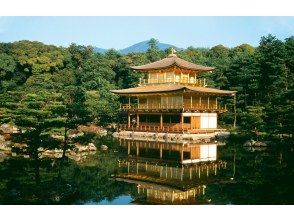
Kinkakuji Temple Kinkakuji's real name is Rikugenji, and it is called Kinkakuji because the exterior walls of the Shariden, the core of the temple, are all decorated with gold leaf. The temple was originally built in 1397 as a villa for Shogun Ashikaga Yoshimitsu (the prototype for Shogun Shun in the anime "Smart Ikkyu") and was later converted into a Zen temple "family temple." If you visit Kinkakuji during the autumn foliage season, you can enjoy the spectacular view of the golden temple and the autumn leaves covering the mountain.
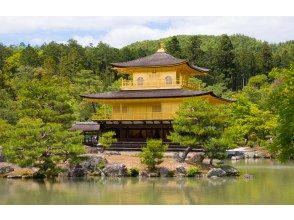
Kinkakuji Temple Kinkakuji's real name is Rikugenji, and it is called Kinkakuji because the exterior walls of the Shariden, the core of the temple, are all decorated with gold leaf. The temple was originally built in 1397 as a villa for Shogun Ashikaga Yoshimitsu (the prototype for Shogun Shun in the anime "Smart Ikkyu") and was later converted into a Zen temple "family temple." If you visit Kinkakuji during the autumn foliage season, you can enjoy the spectacular view of the golden temple and the autumn leaves covering the mountain.
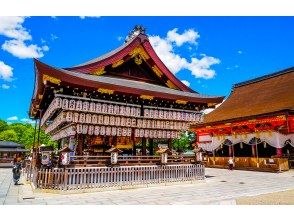
Yasaka Shrine Located in Higashiyama Ward, Kyoto City, this shrine is one of the most famous and oldest in the Kansai region. The designs on the ema are diverse, with the most popular being the heart-shaped ema, which represents prayers for love.
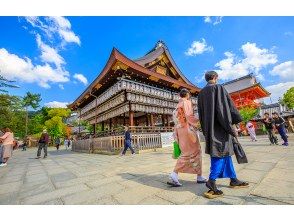
Yasaka Shrine Located in Higashiyama Ward, Kyoto City, this shrine is one of the most famous and oldest in the Kansai region. The designs on the ema are diverse, with the most popular being the heart-shaped ema, which represents prayers for love.
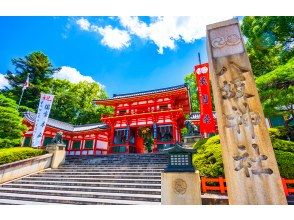
Yasaka Shrine Located in Higashiyama Ward, Kyoto City, this shrine is one of the most famous and oldest in the Kansai region. The designs on the ema are diverse, with the most popular being the heart-shaped ema, which represents prayers for love.
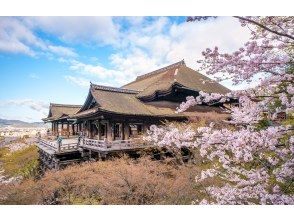
Kiyomizu Temple A World Heritage Site and a popular tourist spot in Kyoto, it is the oldest temple in Kyoto, founded in 778, and is designated as a national treasure of Japan. Jishu Shrine is located to the north of the main hall of Kiyomizu-dera Temple, and is a shrine where people pray for matchmaking and fulfillment of love.
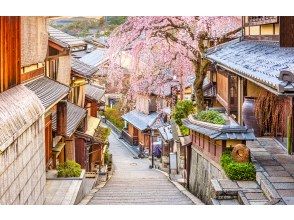
Kiyomizu Temple A World Heritage Site and a popular tourist spot in Kyoto, it is the oldest temple in Kyoto, founded in 778, and is designated as a national treasure of Japan. Jishu Shrine is located to the north of the main hall of Kiyomizu-dera Temple, and is a shrine where people pray for matchmaking and fulfillment of love.
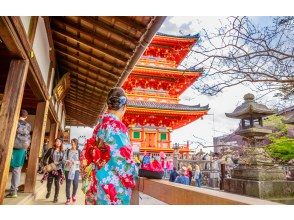
Kiyomizu Temple A World Heritage Site and a popular tourist spot in Kyoto, it is the oldest temple in Kyoto, founded in 778, and is designated as a national treasure of Japan. Jishu Shrine is located to the north of the main hall of Kiyomizu-dera Temple, and is a shrine where people pray for matchmaking and fulfillment of love.
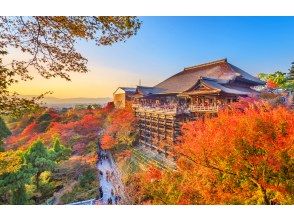
Kiyomizu Temple A World Heritage Site and a popular tourist spot in Kyoto, it is the oldest temple in Kyoto, founded in 778, and is designated as a national treasure of Japan. Jishu Shrine is located to the north of the main hall of Kiyomizu-dera Temple, and is a shrine where people pray for matchmaking and fulfillment of love.
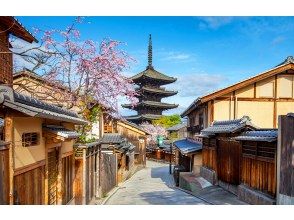
Kiyomizu Temple A World Heritage Site and a popular tourist spot in Kyoto, it is the oldest temple in Kyoto, founded in 778, and is designated as a national treasure of Japan. Jishu Shrine is located to the north of the main hall of Kiyomizu-dera Temple, and is a shrine where people pray for matchmaking and fulfillment of love.
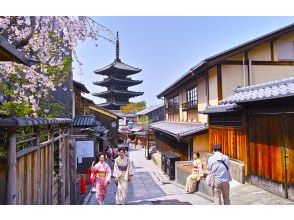
Kiyomizu Temple A World Heritage Site and a popular tourist spot in Kyoto, it is the oldest temple in Kyoto, founded in 778, and is designated as a national treasure of Japan. Jishu Shrine is located to the north of the main hall of Kiyomizu-dera Temple, and is a shrine where people pray for matchmaking and fulfillment of love.
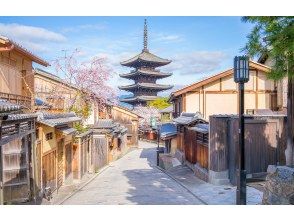
Kiyomizu Temple A World Heritage Site and a popular tourist spot in Kyoto, it is the oldest temple in Kyoto, founded in 778, and is designated as a national treasure of Japan. Jishu Shrine is located to the north of the main hall of Kiyomizu-dera Temple, and is a shrine where people pray for matchmaking and fulfillment of love.
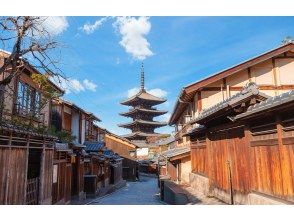
Kiyomizu Temple A World Heritage Site and a popular tourist spot in Kyoto, it is the oldest temple in Kyoto, founded in 778, and is designated as a national treasure of Japan. Jishu Shrine is located to the north of the main hall of Kiyomizu-dera Temple, and is a shrine where people pray for matchmaking and fulfillment of love.
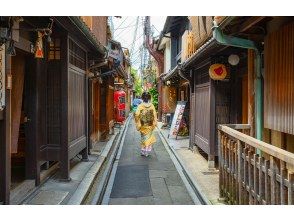
Kiyomizu Temple A World Heritage Site and a popular tourist spot in Kyoto, it is the oldest temple in Kyoto, founded in 778, and is designated as a national treasure of Japan. Jishu Shrine is located to the north of the main hall of Kiyomizu-dera Temple, and is a shrine where people pray for matchmaking and fulfillment of love.
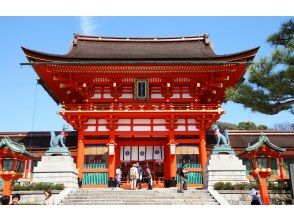
Fushimi-Inari Taisha Fushimi Inari Taisha is famous for its "Thousand Torii Gates" and is ranked first every year in the "Most Popular Japanese Tourist Spots for Foreigners" survey by three of the world's largest travel sites, attracting many tourists from both inside and outside Japan. Continuous bits. Let's pray for ourselves and our loved ones here. In addition, the votive plaques at Fushimi Inari Taisha are also in the shape of a white fox, and you can draw various expressions using your imagination.
Access - Map
1. 8:40 Nihonbashi Station Exit 2 (Namba-Shinsaibashi area) 2. 9:50 Kyoto Station Hachijo Exit (in front of Seven-Eleven) 3. 07:30-08:30 Hotels and guesthouses on the Osaka Loop Line (photo)
All reviews 0Results
Q&A about this plan Ask question about this plan
Activity Provider of this plan
Selling points regarding safety
Application conditionsIf you are in poor health, use a wheelchair or other device, have a mental or physical disability, have an allergy to animals, are pregnant, or may be pregnant, or have a guide dog for the physically disabled (guide dog, hearing dog, or assistance dog), or require other special consideration, please inform us of your need for special consideration when applying. We will comply with your request to the extent possible and reasonable. In this case, you will be responsible for the costs of any special measures we take for you based on your request.
| Authorization issued by | Shizuoka Prefectural Governor Registration Travel Industry No. 2-633 |
|---|---|
| Insurance information | ANTA Liability insurance 5 million yen |
| License and Qualifications | The guide has a tour guide license. |
| Member organizations and associations | Travel Agency Registered by Shizuoka Prefecture Governor No. 2-633 JATA Japan Association of Travel Agents |
| Number of staff | 25 people |
| Number of instructors | 1 people |
![[Day trip] Kyoto city hotel pick-up and drop-off included. Japanese-style Kyoto sightseeing tour, Kinkaku-ji Temple - Kiyomizu-dera Temple - Fushimi Inari Taisha Shrine. Passing through the 1,000 torii gates.の紹介画像](https://img.activityjapan.com/10/55487/10000005548701_P3BiVCAd_4.jpg?version=1733822342)
![[Day trip] Kyoto city hotel pick-up and drop-off included. Japanese-style Kyoto sightseeing tour, Kinkaku-ji Temple - Kiyomizu-dera Temple - Fushimi Inari Taisha Shrine. Passing through the 1,000 torii gates.の紹介画像](https://img.activityjapan.com/11/55487/11000005548702_P3BiVCAd_4.jpg?version=1733822342)
![[Day trip] Kyoto city hotel pick-up and drop-off included. Japanese-style Kyoto sightseeing tour, Kinkaku-ji Temple - Kiyomizu-dera Temple - Fushimi Inari Taisha Shrine. Passing through the 1,000 torii gates.の紹介画像](https://img.activityjapan.com/11/55487/11000005548703_P3BiVCAd_4.jpg?version=1733822342)
![[Day trip] Kyoto city hotel pick-up and drop-off included. Japanese-style Kyoto sightseeing tour, Kinkaku-ji Temple - Kiyomizu-dera Temple - Fushimi Inari Taisha Shrine. Passing through the 1,000 torii gates.の紹介画像](https://img.activityjapan.com/11/55487/11000005548704_P3BiVCAd_4.jpg?version=1733822342)
![[Day trip] Kyoto city hotel pick-up and drop-off included. Japanese-style Kyoto sightseeing tour, Kinkaku-ji Temple - Kiyomizu-dera Temple - Fushimi Inari Taisha Shrine. Passing through the 1,000 torii gates.の紹介画像](https://img.activityjapan.com/11/55487/11000005548705_P3BiVCAd_4.jpg?version=1733822342)
![[Day trip] Kyoto city hotel pick-up and drop-off included. Japanese-style Kyoto sightseeing tour, Kinkaku-ji Temple - Kiyomizu-dera Temple - Fushimi Inari Taisha Shrine. Passing through the 1,000 torii gates.の紹介画像](https://img.activityjapan.com/11/55487/11000005548706_P3BiVCAd_4.jpg?version=1733822342)
![[Day trip] Kyoto city hotel pick-up and drop-off included. Japanese-style Kyoto sightseeing tour, Kinkaku-ji Temple - Kiyomizu-dera Temple - Fushimi Inari Taisha Shrine. Passing through the 1,000 torii gates.の紹介画像](https://img.activityjapan.com/11/55487/11000005548707_P3BiVCAd_4.jpg?version=1733822342)
![[Day trip] Kyoto city hotel pick-up and drop-off included. Japanese-style Kyoto sightseeing tour, Kinkaku-ji Temple - Kiyomizu-dera Temple - Fushimi Inari Taisha Shrine. Passing through the 1,000 torii gates.の紹介画像](https://img.activityjapan.com/11/55487/11000005548708_P3BiVCAd_4.jpg?version=1733822342)
![[Day trip] Kyoto city hotel pick-up and drop-off included. Japanese-style Kyoto sightseeing tour, Kinkaku-ji Temple - Kiyomizu-dera Temple - Fushimi Inari Taisha Shrine. Passing through the 1,000 torii gates.の紹介画像](https://img.activityjapan.com/11/55487/11000005548709_P3BiVCAd_4.jpg?version=1733822342)
![[Day trip] Kyoto city hotel pick-up and drop-off included. Japanese-style Kyoto sightseeing tour, Kinkaku-ji Temple - Kiyomizu-dera Temple - Fushimi Inari Taisha Shrine. Passing through the 1,000 torii gates.の紹介画像](https://img.activityjapan.com/11/55487/11000005548710_P3BiVCAd_4.jpg?version=1733822342)
![[Day trip] Kyoto city hotel pick-up and drop-off included. Japanese-style Kyoto sightseeing tour, Kinkaku-ji Temple - Kiyomizu-dera Temple - Fushimi Inari Taisha Shrine. Passing through the 1,000 torii gates.の紹介画像](https://img.activityjapan.com/11/55487/11000005548711_P3BiVCAd_4.jpg?version=1733822342)
![[Day trip] Kyoto city hotel pick-up and drop-off included. Japanese-style Kyoto sightseeing tour, Kinkaku-ji Temple - Kiyomizu-dera Temple - Fushimi Inari Taisha Shrine. Passing through the 1,000 torii gates.の紹介画像](https://img.activityjapan.com/11/55487/11000005548712_P3BiVCAd_4.jpg?version=1733822342)
![[Day trip] Kyoto city hotel pick-up and drop-off included. Japanese-style Kyoto sightseeing tour, Kinkaku-ji Temple - Kiyomizu-dera Temple - Fushimi Inari Taisha Shrine. Passing through the 1,000 torii gates.の紹介画像](https://img.activityjapan.com/11/55487/11000005548713_P3BiVCAd_4.jpg?version=1733822342)
![[Day trip] Kyoto city hotel pick-up and drop-off included. Japanese-style Kyoto sightseeing tour, Kinkaku-ji Temple - Kiyomizu-dera Temple - Fushimi Inari Taisha Shrine. Passing through the 1,000 torii gates.の紹介画像](https://img.activityjapan.com/11/55487/11000005548714_P3BiVCAd_4.jpg?version=1733822342)
![[Day trip] Kyoto city hotel pick-up and drop-off included. Japanese-style Kyoto sightseeing tour, Kinkaku-ji Temple - Kiyomizu-dera Temple - Fushimi Inari Taisha Shrine. Passing through the 1,000 torii gates.の紹介画像](https://img.activityjapan.com/11/55487/11000005548715_P3BiVCAd_4.jpg?version=1733822342)
![[Day trip] Kyoto city hotel pick-up and drop-off included. Japanese-style Kyoto sightseeing tour, Kinkaku-ji Temple - Kiyomizu-dera Temple - Fushimi Inari Taisha Shrine. Passing through the 1,000 torii gates.の紹介画像](https://img.activityjapan.com/11/55487/11000005548716_P3BiVCAd_4.jpg?version=1733822342)
![[Day trip] Kyoto city hotel pick-up and drop-off included. Japanese-style Kyoto sightseeing tour, Kinkaku-ji Temple - Kiyomizu-dera Temple - Fushimi Inari Taisha Shrine. Passing through the 1,000 torii gates.の紹介画像](https://img.activityjapan.com/11/55487/11000005548717_P3BiVCAd_4.jpg?version=1733822342)
![[Day trip] Kyoto city hotel pick-up and drop-off included. Japanese-style Kyoto sightseeing tour, Kinkaku-ji Temple - Kiyomizu-dera Temple - Fushimi Inari Taisha Shrine. Passing through the 1,000 torii gates.の紹介画像](https://img.activityjapan.com/11/55487/11000005548718_P3BiVCAd_4.jpg?version=1733822342)
![[Day trip] Kyoto city hotel pick-up and drop-off included. Japanese-style Kyoto sightseeing tour, Kinkaku-ji Temple - Kiyomizu-dera Temple - Fushimi Inari Taisha Shrine. Passing through the 1,000 torii gates.の紹介画像](https://img.activityjapan.com/11/55487/11000005548719_P3BiVCAd_4.png?version=1733822342)
![[Kobe day trip with transfer] A luxurious plan that includes the three most popular attractions: Arima's famous hot springs, shopping, and the million-dollar night view of Mt. Rokko](https://img.activityjapan.com/10/55492/10000005549201_P3BiVCAd_2.jpg?version=1744699982)
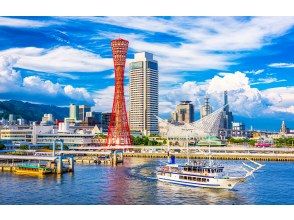
![[Day trip] Kobe night view, Kobe Port Skyscraper Ferris Wheel, Kitano Foreigners' House District, Arima Onsen, Mt. Rokko night view](https://img.activityjapan.com/10/55503/10000005550301_P3BiVCAd_2.jpg?version=1744705983)
![[Day trip] Kyoto, Amanohashidate, Ine Funaya, Miyama Thatched House plan (with hotel pick-up in Osaka city)](https://img.activityjapan.com/10/56281/10000005628101_KGckTMmm_2.jpg?version=1730786645)
![[Kyushu, Oita] Yufuin | Lake Kinrin | Kyushu Natural Zoo | Sea Hell | Hearth Hell Day Tour](https://img.activityjapan.com/10/56283/10000005628301_1dhWswak_2.jpg?version=1744773546)
![[Kyushu-Kumamoto] Kamishiromi Kumanoimasu Shrine | Takamori Senbonzakura | Amano Iwato Shrine | Tenan Riverside | Takachiho Gorge Day Trip (Departing from Fukuoka)](https://img.activityjapan.com/10/56297/10000005629701_1dhWswak_2.jpg?version=1744774803)
![[Kumamoto Castle] Aso Volcano Senri | Aso Boy Sightseeing Train Experience Day Tour | Departing from Fukuoka | Departing from Kumamoto](https://img.activityjapan.com/10/56300/10000005630001_P3BiVCAd_2.jpg?version=1730966223)
![[Day trip] Awaji Island and Naruto sightseeing plan (with city hotel pick-up and drop-off)](https://img.activityjapan.com/10/55719/10000005571901_1dhWswak_2.jpg?version=1744856222)
![[Kyoto day trip with transfer included] A plan to visit two of Kyoto's great attractions: Arashiyama's spectacular trolley ride and Kokedera Sanzenin Temple](https://img.activityjapan.com/10/55488/10000005548801_P3BiVCAd_2.jpg?version=1744016286)
![[Day trip plan] Miho Museum and Omihachiman sightseeing (with hotel pick-up and drop-off in the city)](https://img.activityjapan.com/10/55718/10000005571801_1dhWswak_2.jpg?version=1744171925)
![[Kyoto Nijo Jokita] W (double) braid (braid) and power stone bracelet making experience](https://img.activityjapan.com/10/41769/10000004176901_Sy9J09zs_2.JPG?version=1649758326)
![[Kyoto Nijo Jokita] Experience making bracelets (anklets are also possible) of power stones and Kyoto braids (braids)](https://img.activityjapan.com/10/29277/10000002927701_o7ecBU6q_2.JPG?version=1716006857)
![[Kyoto / Kita Ward] Weaving experience (plain weaving / hand weaving) & workshop tour / Experience the best Nishiki traditional fabrics, art and history](https://img.activityjapan.com/10/14026/10000001402601_IpdJM0ZF_2.jpg?version=1679460662)
![[Kyoto, Kinkakuji area] Food sample experience course (Normal course) NORMAL MODE ¥8,000~](https://img.activityjapan.com/10/60428/10000006042801_ksU1RUgV_2.jpg?version=1754700728)
![[Kyoto, Kinkakuji area] Experience traditional crafts with a Nishijin weaving workshop tour and hand weaving experience](https://img.activityjapan.com/10/60308/10000006030801_c1Vl5gwV_2.jpg?version=1754348942)
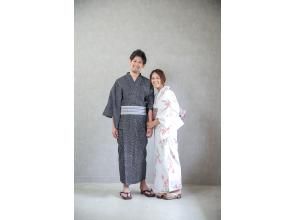
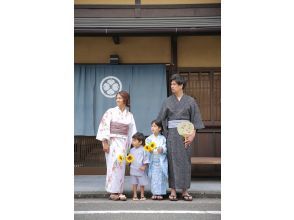
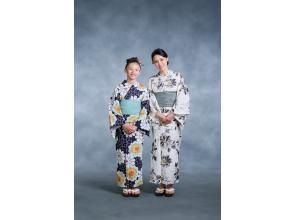
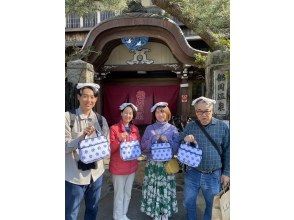
![[Kyoto/Kinkakuji area] Food sample experience course (Normal course) NORMAL MODE ¥6000~](https://img.activityjapan.com/10/57932/10000005793201_ksU1RUgV_2.JPG?version=1754234649)